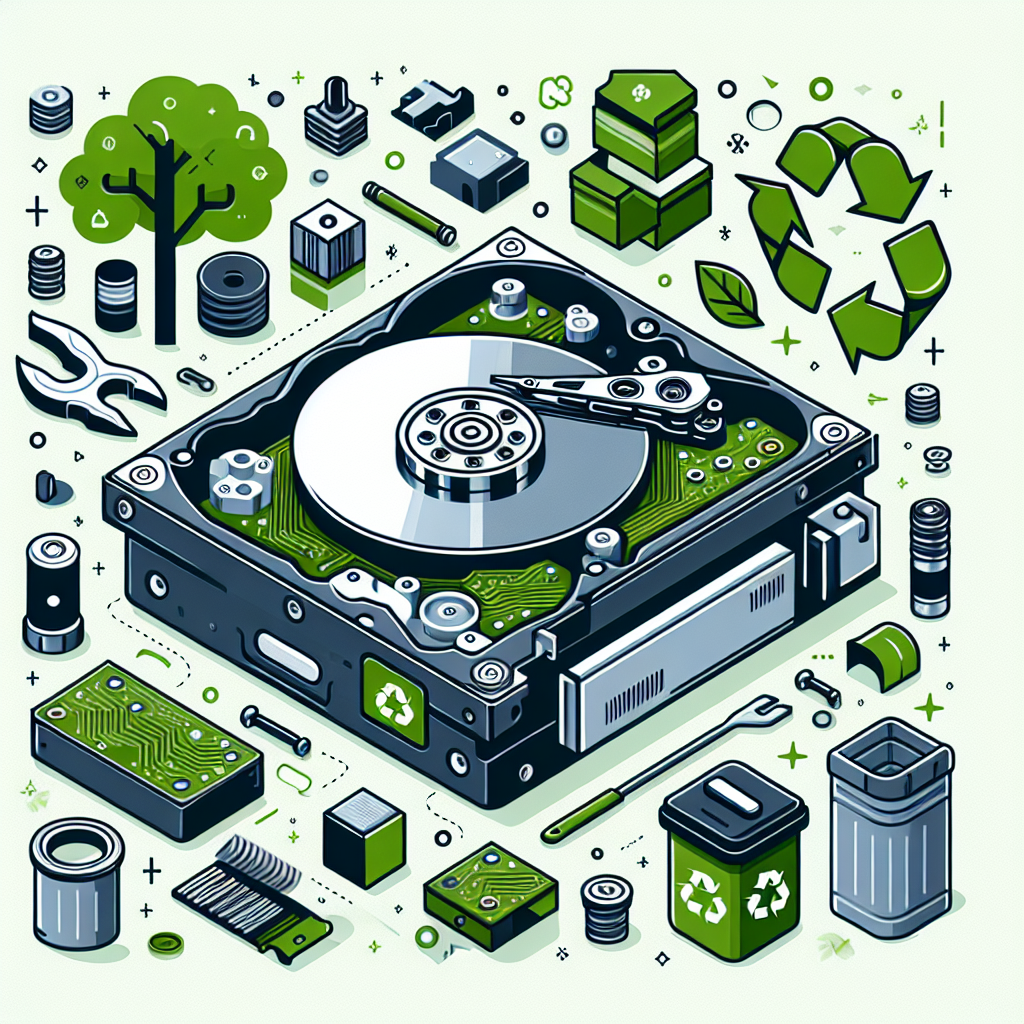Your cart is currently empty!
The Environmental Impact of Hard Disk Drives: How to Recycle and Dispose of Old Drives Responsibly

Hard disk drives (HDDs) are essential components of computers and store vast amounts of data. However, the production and disposal of HDDs can have a significant impact on the environment. From the extraction of raw materials to the manufacturing process and finally to the disposal of old drives, HDDs contribute to pollution, resource depletion, and electronic waste.
One of the main environmental concerns associated with HDDs is the extraction and processing of raw materials. The manufacturing of HDDs requires the use of materials such as aluminum, copper, and rare earth metals. The extraction of these materials can lead to deforestation, water pollution, and habitat destruction. Additionally, the manufacturing process itself produces greenhouse gas emissions and other pollutants that contribute to climate change and air pollution.
Another environmental issue related to HDDs is electronic waste (e-waste). As technology advances and consumers upgrade their devices more frequently, the amount of e-waste generated is increasing rapidly. When old HDDs are not disposed of properly, they can end up in landfills where toxic chemicals from the electronic components can leach into the soil and water, contaminating the environment and posing a threat to human health.
To mitigate the environmental impact of HDDs, it is important to recycle and dispose of old drives responsibly. Recycling old HDDs allows for the recovery of valuable materials such as metals and plastics, reducing the need for new resources to be extracted. Additionally, recycling helps to prevent e-waste from ending up in landfills and reduces the pollution and greenhouse gas emissions associated with the disposal of electronic devices.
There are several ways to recycle old HDDs. Many electronic retailers and manufacturers offer recycling programs where consumers can drop off their old devices for proper disposal. Additionally, there are third-party recycling centers and e-waste collection events where old HDDs can be recycled. Some organizations also offer data destruction services to ensure that sensitive information stored on the drives is securely erased before recycling.
In addition to recycling, another option for disposing of old HDDs responsibly is to donate them to organizations in need. Many non-profit organizations, schools, and community centers accept donations of old computers and electronic devices to refurbish and redistribute to those who may not have access to technology.
In conclusion, the environmental impact of HDDs is significant, but by recycling and disposing of old drives responsibly, we can help reduce the negative effects on the environment. By choosing to recycle old HDDs, we can conserve resources, reduce e-waste, and minimize pollution. It is important for individuals and businesses to take action and make responsible choices when it comes to the disposal of electronic devices to protect the environment for future generations.

Leave a Reply